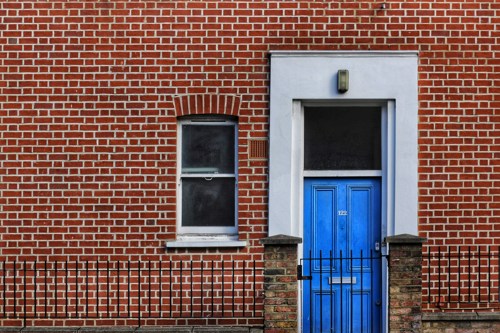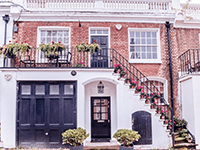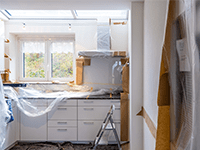
Have you found yourself in need of extra funds to renovate your rental property or to raise a deposit for a second one? If so, you may have encountered second charge buy to let mortgages before. But, what exactly is this?
In this blog, we'll explore this solution, showing you when it could be a good option for you and how it works.
What is a second charge buy to let mortgage?
As the name suggests, it's a second mortgage on your rental property, giving you a way to raise funds for various purposes. It's also known as a buy to let secured loan.
This second loan is separate from your first mortgage and comes from a different lender. So, your initial mortgage stays the same, with its current interest rate and terms intact.
It's often used when you can't raise extra funds from your current lender through a further advance. Alternatively, it’s also an option when you prefer not to remortgage due to potential penalties or loss of current terms.
However, it's important to note that, like your first mortgage, failure to repay this loan could put your property at risk of repossession.
What can you use a buy to let second charge mortgage for?
These loans are highly versatile and can be used for any legal purpose you can think of. Common reasons for getting this type of loan include consolidating debts, funding improvements or refurbishments to your rental property, and raising money for a deposit on a second property.
Other potential uses include paying tax bills, financing lease extensions, or making business investments.
Can I get a second charge mortgage on my buy to let property?
If you own a rental property that can serve as collateral and you've built up some equity in it, this could be an option for you. You might also need permission from your first charge lender to proceed, as this involves securing another loan on the property they are also using as collateral.
However, keep in mind that each lender has its own set of requirements and terms for approval. So, while you might get approved by one lender, you may not by another. That's why it's crucial to research thoroughly and avoid feeling pressured to settle for the first option you come across. You can also consider getting help from a financial advisor or mortgage broker to help you navigate the search for the right product.
What should I consider before I take out a second charge on a buy to let property?
Before you take out this option, it is important to make sure you carefully consider it. Taking on any type of financial commitment is a big step. Therefore, there are some key questions you should ask yourself to determine if it's the right choice for you.
- Can you afford the repayments? Do you have tenants in place to ensure consistent rental income for making these repayments?
- If your tenants were to leave and you lost this rental income, would you still be able to afford the repayments?
- Is there any reason why your first mortgage lender might reject the second mortgage application?
- Would you get a better deal by exploring other options, such as raising a smaller amount of money with an unsecured loan?
Can I get this solution if I have bad credit?
While it is possible to get this solution even with a bad credit history, options may be limited. Additionally, interest rates are likely to be higher to reduce the lender's risk.
Lenders understand that missed repayments can occur if tenants fall behind on rental payments, so they may be more relaxed. However, each lender will review your application carefully to understand your overall situation before approving it.
Summary
In summary, getting a second charge mortgage on your rental property can be a valuable option for raising funds to support your plans. It's particularly useful if you're having trouble securing funding elsewhere or if you prefer not to remortgage. However, since it involves securing another loan against your rental property, it's important to carefully consider this decision before proceeding.
Loans are secured against property. Think carefully before securing other debts against your home. Your home may be repossessed if you do not keep up repayments on a mortgage or any other debt secured on it.




